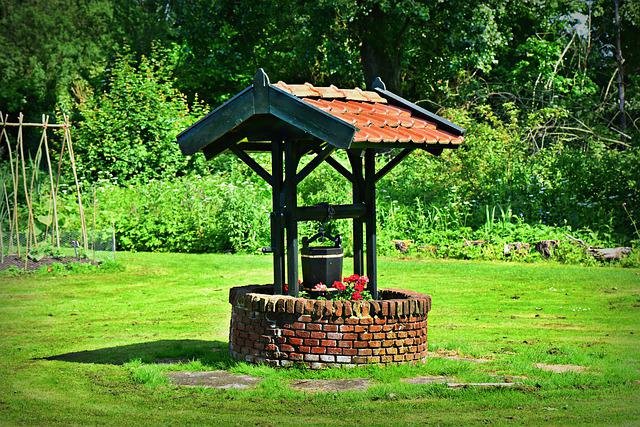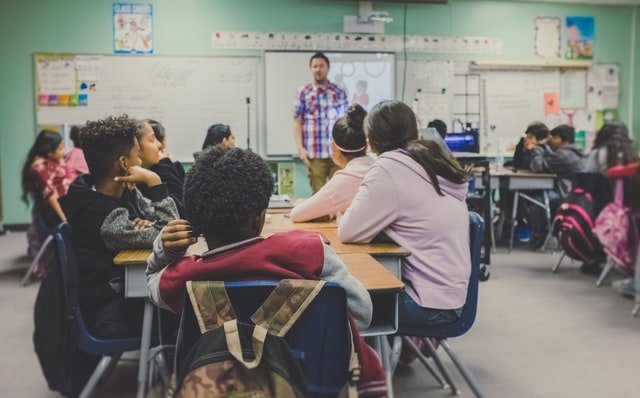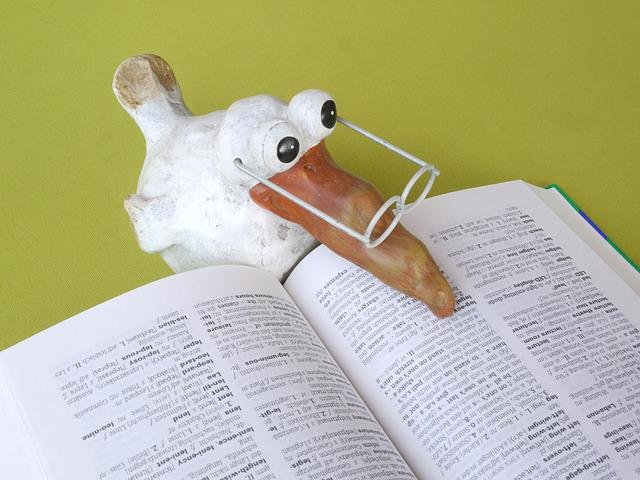[Esp-Eng] El arte de educar || the art of educating

Source
El pensamiento crítico que queremos estimular aquí en la comunidad de humanitas nos enseña entre otras cosas que las líneas que enmarcan a un saber como ciencia en realidad no son absolutas, pues, en realidad no se trata de simplemente estructurar una disciplina según unos estándares establecidos sino que es necesario ir más allá y darnos cuenta qué es necesario para que dicha disciplina se encuentre con su real esencia. En el caso de la pedagogía que es el tema que esta semana nos corresponde reflexionar en nuestra iniciativa creo que lo podemos notar de manera diáfana.
El arte de ir al pozo
Tanto para quienes tenemos experiencia de dar clases en un aula como para todos los que hemos tenido personas que nos han impartido algún tipo de enseñanza es claro que educar es un arte, pues, a un(a) buen(a) educador(a) no lo hace un título sino ese carisma y talento particular para despertar el amor al saber y a la vida en su conjunto, ya que como lo señala la Unesco hay que educar para aprender a conocer, aprender a hacer, aprender a convivir y aprender a ser.
Una imagen que me gusta traer a la memoria al hablar de este tema es una persona que va a esos pozos antiguos para sacar agua, se dirige hacia el lugar donde éste se encuentra, baja un tobo amarrado a una cuerda y luego lo sube lleno de agua cristalina. Así también es la educación que según la raíz de la palabra latina Educere ("sacar de...") consiste en extraer desde dentro de las personas lo mejor de las mismas, por eso, para mí lo más importante no es llenar la cabeza de conocimientos, menos en esta era del Internet donde todo está literalmente al alcance de las manos sino en ayudar a que cada uno se forme con una conciencia crítica ante la vida que tiene por delante, en la cual triunfa no el que más sabe sino que ha aprendido a integrar lo mucho o poco que sabe a su cotidianidad.
Así pues podemos decir que la pedagogía es ese arte de dirigirnos a las personas para enseñarles a descubrir que todo lo que la vida nos da (conocimientos, experiencias, técnicas, etc.) tenemos que procesarlo por nosotros mismos para que realmente asimilemos lo que hemos recibido y nos sea de provecho. De allí esa frase que alguna vez escuché tiene toda su validez: "A veces uno pasa por la escuela (colegio, universidad o instituto) pero ésta no pasa por uno", ya que no se sale con criterios sanos, valores fuertes ni una actitud que ayude a progresar. He aquí donde entonces la tarea de los educadores se muestra en toda su grandeza cuando somos capaces de apuntar hacia estos objetivos en todos y en cada uno de los procesos pedagógicos que abramos.
The critical thinking that we want to stimulate here in the humanitas community teaches us among other things that the lines that frame knowledge as a science are not really absolute, because, in reality, it is not simply a matter of structuring a discipline according to established standards but it is necessary to go beyond and realize what is necessary for that discipline to find its real essence. In the case of pedagogy, which is the topic that this week is for us to reflect on in our initiative, I think we can notice it in a diaphanous way.
The art of going to the well
Both for those of us who have experience teaching in a classroom and for all of us who have had people who have taught us some education, it is clear that educating is an art, because a good educator is not made by a title but by that particular charisma and talent to awaken the love of knowledge and life as a whole, since, as Unesco points out, we must educate to learn to know, to learn to do, to learn to live together and to learn to be.
An image that I like to bring to mind when talking about this topic is a person who goes to those old wells to draw water, goes to the place where it is located, lowers a pipe tied to a rope and then raises it full of crystal clear water. So is education, which according to the root of the Latin word Educere ("to draw from...") consists of extracting from within people the best of them, therefore, for me the most important thing is not to fill the head with knowledge, especially in this era of the Internet where everything is literally at our fingertips, but to help each one to be formed with a critical conscience before the life that lies ahead, in which not the one who knows the most but the one who has learned to integrate the much or little he knows to his daily life, is the winner.
Thus we can say that pedagogy is the art of directing people to teach them to discover that everything that life gives us (knowledge, experiences, techniques, etc.) we have to process by ourselves so that we really assimilate what we have received and it is of benefit to us. Hence the phrase that I once heard has all its validity: "Sometimes you go through school (college, university, or institute) but it does not go through you", since you do not leave with healthy criteria, strong values, or an attitude that helps you to progress. This is where the task of educators is shown in all its great when we are able to point towards these objectives in each and every one of the pedagogical processes that we open.

Source

Pedagogos benditos
Estoy muy agradecido con la vida y con Dios porque en mi camino se cruzaron excelentes educadores que desde su personalidad me han ayudado a ser lo que hoy soy, a sacar la mejor versión de mí, y lo que es más importante nunca parar de crecer en todas y cada una de mis áreas existenciales. Así recuerdo con gusto la educación integral recibida en mi infancia y la atención recibida de los profesores que de tal manera se ocupaban porque aprendiéramos que no escatimaban su tiempo ni esfuerzos incluso fuera de las horas de clases.
De mi juventud agradezco a esos profesores que aunque de momento uno no entendía ni aceptaba, jajaja, eran exigentes en su materia, al mirar atrás uno se da cuenta que al final de ellos es de los que más se puede aprender, lo cual lleva relación con lo que es la misión del educador, darles metas altas a sus alumnos para que realmente puedan sacar de dentro de sí lo mejor. No puedo evitar traer a la memoria a figuras como Sócrates que con el método de la mayéutica hacía "parir" el conocimiento a sus oyentes o a Jesucristo que hablabla en parábolas y decía "Ustedes oirán una y otra vez y no entenderán; mirarán y volverán a mirar, pero no verán... dichosos ustedes, porque sus ojos ven y sus oídos oyen" (Mt 13,14.16).
Mención especial hago aquí a quien fue uno de mis mejores profesores de filosofía, Fernando Santamaría, de feliz memoría, pues de él aprendí a ser crítico con el conocimiento, la historia, las circusntancias y la vida en general, a ir más allá de lo que nos enseñan los libros y aprendermos en las aulas de clases, él nos decía constantemente refiriéndose a la filosofía que lo importante es sí aprender todo lo que podamos de los diversos pensadores y sistemas de pensamiento pero al final construir nuestra propia filosofía de vida.
Blessed pedagogues
I am very grateful to life and to God because excellent educators crossed my path and from their personalities, they have helped me to be what I am today, to bring out the best version of me, and what is more important, never to stop growing in each and every one of my existential areas. Thus I remember with pleasure the integral education received in my childhood and the attention received from the teachers who were so concerned about us learning that they did not spare their time or efforts even outside of class hours.
From my youth I am grateful to those teachers that although at the time one did not understand or accept, hahaha, they were demanding in their subject, looking back one realizes that in the end it is from them that one can learn the most, which is related to what is the mission of the educator, to give high goals to their students so that they can really get the best out of themselves. I cannot avoid bringing to mind figures like Socrates who with the method of mayeutics made his listeners "give birth" to the knowledge, or Jesus Christ who spoke in parables and said, "You will hear again and again and will not understand; you will look and look again, but you will not see.... Blessed are you, for your eyes see and your ears hear" (Mt 13:14,16).
I make special mention here to one of my best philosophy teachers, Fernando Santamaría, of happy memory, because from him I learned to be critical of knowledge, history, circumstances, and life in general, to go beyond what books teach us and what we know in the classroom, he constantly told us referring to the philosophy that the important thing is to learn everything we can from the various thinkers and systems of thought but in the end to build our own philosophy of life.

Source

Juicio a la educación actual
Un tema que respecto a la pedagogía no quiero pasar por alto es no tanto como se la entiende hoy, porque pienso que los conceptos los tenemos más o menos claros sino cómo se pone en práctica. Por ejemplo, la tendencia natural de un profesor en un salón de clases es juzgar a todos más o menos según una misma medida, cuando esto no es posible en la mayoría de los casos, pues nos podemos conseguir con un alumno que mientras es pésimo para las matemáticas es excelente artista y aún en el mismo campo es regular en escultura - por ejemplo - pero espectacular en la pintura. Por eso, siempre será actual la frase de Albert Einstein "Si juzgas a un pez por su habilidad por trepar árboles, creerá toda la vida que no sirve para nada", cuando la verdad es que no es bueno para eso en particular pero sí puede desenvovlerse como excelente nadador.
Por esta razón, la pedagogía en sus diferentes enfoques debe ayudar a que cada uno encuentre su lugar en el mundo, al final un auténtico pedagogo es un maestro de la vida, personaliza lo que transmite, no hace generalizaciones porque cada pozo (persona) a la que se dirige es diferente y tiene también sus formas particulares de aprender. Por eso, cuando doy clases lo más interesante no es dar el contenido sino resolver las dudas, preguntas o dificultades de aprendizaje de mis estudiantes.
Así pues, es un gran reto el que hoy se le presenta a la pedagogía, el reto de no sólo ampliar la mente por medio del conocimiento que se transmite sino también el corazón para abrazar la vida con todo lo que ella significa y la actitud para no tener miedo a salir al mundo a dar lo mejor, pues todo estamos capacitados para ello aunque de diversas maneras. El siguiente video complementa este punto y lo ilustra de una manera espectacular, espero lo disfruten.
Judgment of current education
An issue that I do not want to overlook regarding pedagogy is not so much how it is understood today, because I think we are more or less clear about the concepts, but how it is put into practice. For example, the natural tendency of a teacher in a classroom is to judge everyone more or less according to the same measure, when this is not possible in most cases because we can get a student who, while being terrible at mathematics, is an excellent artist and even in the same field is average in sculpture - for example - but spectacular in painting. For this reason, Albert Einstein's phrase "If you judge a fish by its ability to climb trees, it will believe all its life that it is good for nothing" will always be current when the truth is that it is not good for that in particular, but it can develop as an excellent swimmer.
For this reason, pedagogy in its different approaches must help everyone to find their place in the world, in the end, a true pedagogue is a teacher of life, he personalizes what he transmits, and he does not make generalizations because each well (person) to whom he addresses is different and also has its particular ways of learning. That is why, when I teach, the most interesting thing is not to give the content but to solve the doubts, questions, or learning difficulties of my students.
So, it is a great challenge that is presented to pedagogy today, the challenge of not only expanding the mind through the knowledge that is transmitted but also the heart to embrace life with all that it means and the attitude to not be afraid to go out into the world to give the best, because we are all qualified to do so, although in different ways. The following video complements this point and illustrates it in a spectacular way, I hope you enjoy it.

Thank you very much for having accompanied me in the reading of this post, wishing you always the best and that we can meet again in the next publication, I say goodbye, see you later.


- Traducido con www.DeepL.com/Translator || Translated with www.DeepL.com/Translator


Saludos, jesús.
La verdad es que estoy de acuerdo contigo con que la pedagogía le esperan grandes retos por confrontar, y es superar la estructura tradicional para contextualizar la enseñanza, sobre todo tomando en cuenta los talentos y habilidades de cada persona, valorando quien es y lo que le gusta hacer sin menospreciar.
Muchas cosas buenas.
Saludos, si es salir de los standares del saber meramente intelectual, cuando ya hay estudios que nos enseñan mucho de los diversos tipos de inteligencia, artística, deportiva, etc pero que por no prestarles atención a veces se pierde la oportunidad.
!PIZZA
PIZZA Holders sent $PIZZA tips in this post's comments:
@jesusalejos(2/10) tipped @luvilozada (x1)
Join us in Discord!
Recuerdo haber visto ese video hace un tiempo. Tiene un muy buen mensaje, ojalá sea más tomado en cuenta para el futuro.